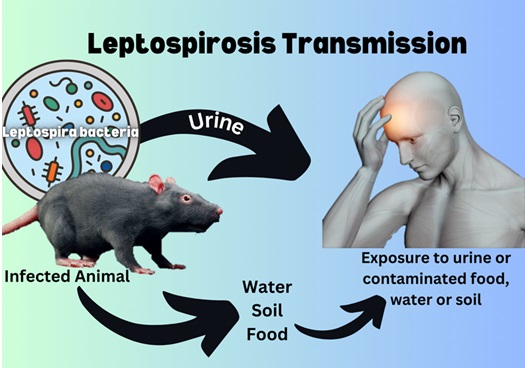The ever-increasing cases of Leptospirosis in Kerala have emerged as a major public health concern. Many people have also died due to this.
About Leptospirosis
- What it is: A zoonotic disease caused by bacteria
- Zoonotic means that it is transmitted from animals to people.
- Other names: Rat fever
- Bacteria: Caused by Leptospira bacteria found in animals, especially in the urine of rats.
- This bacteria enters the body through wounds and mucous membranes.
- Apart from rats, farm animals and dogs can also spread this disease.
- Common symptoms: Fever, myalgia and headache
- However, be on the lookout for more serious symptoms such as tachypnea, low blood pressure (hypotension) and jaundice.
- Risks: Some people may have no symptoms but may develop serious complications such as kidney failure, meningitis, liver problems and respiratory problems
- If left untreated, leptospirosis can rapidly damage internal organs, making it a silent killer. The disease has a high mortality rate.

- Affected population: People working outside or with animals are at greater risk
- People engaged in rice and sugarcane cultivation, farmers, sewer workers, veterinarians, dairy workers and military personnel etc. can be affected by this.
|
Know this too!
- According to medical experts, excessive rainfall and waterlogging increase the chances of spread of leptospirosis during monsoon season.
- Poor waste management also leads to increase in its cases as it has increased the population of rats.
- It is mainly endemic in countries with humid subtropical and tropical climates.
- According to the World Health Organization, more than 500,000 cases of leptospirosis are reported every year worldwide. It can also be a potential epidemic.
|



